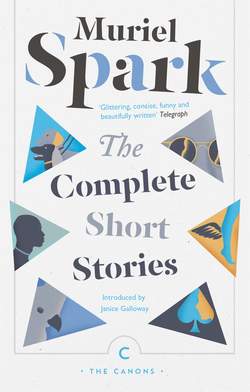Читать книгу The Complete Short Stories - Muriel Spark - Страница 14
На сайте Литреса книга снята с продажи.
THE SERAPH AND THE ZAMBEZI
ОглавлениеYou may have heard of Samuel Cramer, half poet, half journalist, who had to do with a dancer called the Fanfarlo. But, as you will see, it doesn’t matter if you have not. He was said to be going strong in Paris early in the nineteenth century, and when I met him in 1946 he was still going strong, but this time in a different way. He was the same man, but modified. For instance, in those days, more than a hundred years ago, Cramer had persisted for several decades, and without affectation, in being about twenty-five years old. But when I knew him he was clearly undergoing his forty-two-year-old phase.
At this time he was keeping a petrol pump some four miles south of the Zambezi River where it crashes over a precipice at the Victoria Falls. Cramer had some spare rooms where he put up visitors to the Falls when the hotel was full. I was sent to him because it was Christmas week and there was no room in the hotel.
I found him trying the starter of a large, lumpy Mercedes outside his corrugated-iron garage, and at first sight I judged him to be a Belgian from the Congo. He had the look of north and south, light hair with canvas-coloured skin. Later, however, he told me that his father was German and his mother Chilean. It was this information rather than the “S. Cramer” above the garage door which made me think I had heard of him.
The rains had been very poor and that December was fiercely hot. On the third night before Christmas I sat on the stoep outside my room, looking through the broken mosquito-wire network at the lightning in the distance. When an atmosphere maintains an excessive temperature for a long spell something seems to happen to the natural noises of life. Sound fails to carry in its usual quantity, but comes as if bound and gagged. That night the Christmas beetles, which fall on their backs on every stoep with a high tic-tac, seemed to be shock-absorbed. I saw one fall and the little bump reached my ears a fraction behind time. The noises of minor wild beasts from the bush were all hushed-up, too. In fact it wasn’t until the bush noises all stopped simultaneously, as they frequently do when a leopard is about, that I knew there had been any sound at all.
Overlying this general muted hum, Cramer’s sundowner party progressed farther up the stoep. The heat distorted every word. The glasses made a tinkle that was not of the substance of glass, but of bottles wrapped in tissue paper. Sometimes, for a moment, a shriek or a cackle would hang torpidly in space, but these were unreal sounds, as if projected from a distant country, as if they were pocket-torches seen through a London fog.
Cramer came over to my end of the stoep and asked me to join his party. I said I would be glad to, and meant it, even though I had been glad to sit alone. Heat so persistent and so intense sucks up the will.
Five people sat in wicker armchairs drinking highballs and chewing salted peanuts. I recognized a red-haired trooper from Livingstone, just out from England, and two of Cramer’s lodgers, a tobacco planter and his wife from Bulawayo. In the custom of those parts, the other two were introduced by their first names. Mannie, a short dark man of square face and build, I thought might be a Portuguese from the east coast. The woman, Fanny, was picking bits out of the frayed wicker chair and as she lifted her glass her hand shook a little, making her bracelets chime. She would be about fifty, a well-tended woman, very neat. Her grey hair, tinted with blue, was done in a fringe above a face puckered with malaria.
In the general way of passing the time with strangers in that countryside, I exchanged with the tobacco people the names of acquaintances who lived within a six-hundred-mile radius of where we sat, reducing this list to names mutually known to us. The trooper contributed his news from the region between Lusaka and Livingstone. Meanwhile an argument was in process between Cramer, Fanny and Mannie, of which Fanny seemed to be getting the better. It appeared there was to be a play or concert on Christmas Eve in which the three were taking part. I several times heard the words “troupe of angels”, “shepherds”, “ridiculous price” and “my girls” which seemed to be key words in the argument. Suddenly, on hearing the trooper mention a name, Fanny broke off her talk and turned to us.
